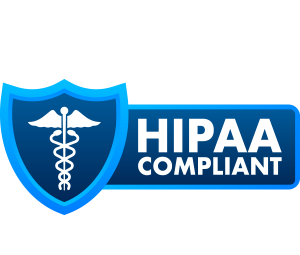Health Insurance Portability and Accountability Act
HIPAA
Cyber Risk Assessments



Intro
A HIPAA risk assessment evaluates potential dangers to the confidentiality and integrity of Protected Health Information (PHI), the probability of such risks materializing, and the potential consequences of each risk.
The Health Insurance Portability and Accountability Act Security Rule requires physicians to protect patients’ electronically stored, protected health information (known as “ePHI”) by using appropriate administrative, physical and technical safeguards to ensure the confidentiality, integrity and security of this information.
About the Assessment
This assessment enables the determination of whether current policies, procedures, and security measures are sufficient in mitigating risks to an acceptable and suitable level.
The initial obligation for performing a HIPAA risk assessment is outlined in the Security Rule (45 CFR § 164.308 – Security Management Process). This regulation mandates that covered entities and business associates carry out a “comprehensive and precise evaluation of potential risks and vulnerabilities affecting the confidentiality, integrity, and accessibility of ePHI.
The subsequent requirement is outlined in the Breach Notification Rule (45 CFR § 164.402). This criterion solely comes into effect in instances of unauthorized acquisition, access, use, or disclosure of unsecured PHI (in any form). A HIPAA risk assessment is essential in assessing whether the incident warrants notification to HHS and the individuals impacted.
The magnitude of penalties for HIPAA non-compliance has traditionally been contingent on the scale of patients affected by a PHI breach and the degree of negligence demonstrated. Presently, minimal fines are imposed in the lowest “Did Not Know” violation category, as there is scant justification for being unaware of the legal obligation to safeguard PHI.
In more recent times, the bulk of penalties fall under the “Willful Neglect” violation category, wherein organizations were aware, or ought to have been aware, of their duty to protect PHI. Many substantial fines, such as the $5.5 million penalty levied against the Advocate Health Care Network, stem from organizations’ failure to identify areas of vulnerability regarding PHI integrity.
Small and medium-sized medical practices are not immune to scrutiny under HIPAA regulations, despite the spotlight often shining on larger organizations in headlines regarding non-compliance fines. The Office for Civil Rights (OCR) and HIPAA audits also target numerous smaller medical practices. Since 2003, OCR has received over 300,000 reports of alleged HIPAA violations, with less than 2% involving data breaches affecting 500 individuals or more.
One significant challenge for these smaller practices is the lack of comprehensive insurance coverage for HIPAA breaches. The financial repercussions of a breach extend beyond fines, encompassing expenses like hiring IT specialists to investigate the breach, rebuilding public trust, and providing credit monitoring services for affected individuals. Insurance coverage may be limited based on the severity of the violation and level of negligence.
For small practices without adequate insurance, the financial impact of a HIPAA breach could be devastating, potentially leading to closure. However, this risk can be mitigated through thorough HIPAA risk assessments and the implementation of corrective measures. While assessments may be intricate and time-intensive, the alternative could prove catastrophic for both small medical practices and their associates.
More Information
Each entity covered by HIPAA regulations, whether involved in generating, receiving, preserving, or transmitting PHI, is mandated to perform a meticulous and precise HIPAA risk assessment to adhere to the Security Management provisions of the HIPAA Security Rule.
This compliance prerequisite extends beyond medical establishments and health insurance schemes; it also encompasses business associates, subcontractors, and vendors, who are obliged to conduct their own HIPAA security risk assessments. Similar to covered entities, OCR retains the authority to levy fines against business associates for potential PHI breaches in cases of non-compliance.

